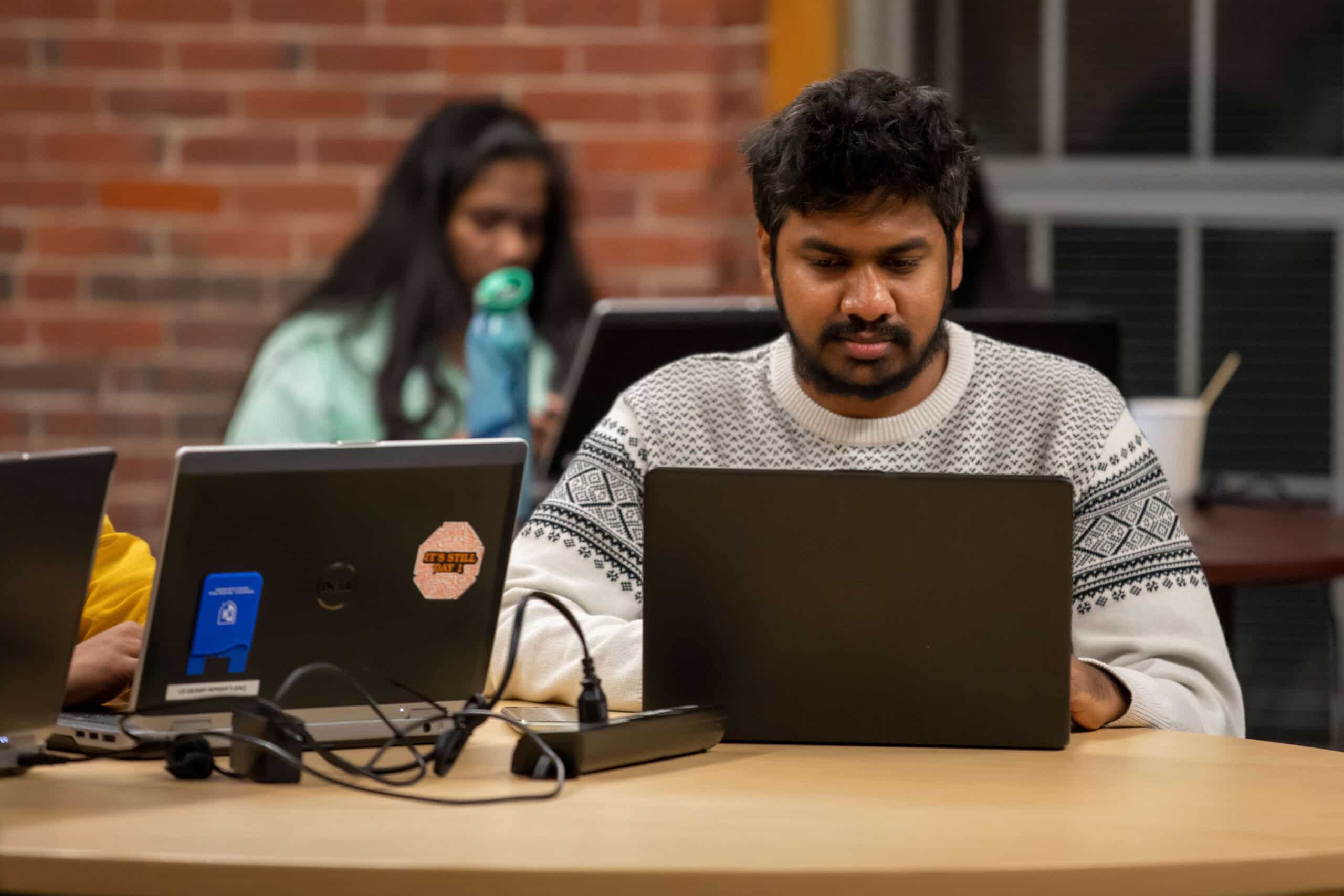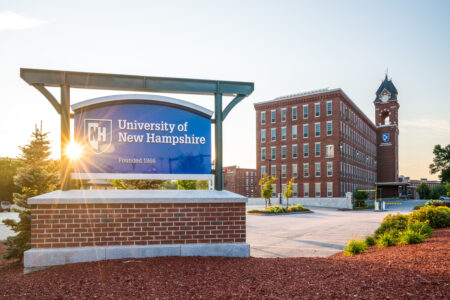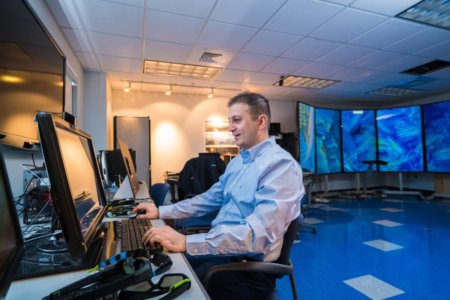Growing up in Andhra Pradesh, India, was always intrigued by technology’s role in solving complex problems and improving efficiency. And while she certainly garnered a solid foundation from the Bachelor of Technology she completed locally, her curiosity remained insatiable. The desire to make a tangible impact through advanced knowledge propelled her towards the University of New Hampshire (UNH) Manchester.
“I chose to come here because of its strong reputation and strategic location in the Manchester area, which is home to a vibrant tech community,” she says. “UNH’s Master of Science in Information Technology (MSIT) programme’s comprehensive curriculum and emphasis on real-world applications instantly caught my attention, too.”
The MSIT does in fact equip students for successful careers in professional IT or computing-related fields by prioritising project-based learning, incorporating state-of-the-art tools and embracing immersive hands-on experiences. Hence, Mulakalapalli’s UNH programme was experiential from one.
The Practical Artificial Intelligence course exposed her to AI’s capabilities to solve complex problems. She saw the technology in action when she was tasked to execute hands-on projects that revolved around real-world applications. Her Software Development course was similar, requiring her to experience the end-to-end process of developing a library management system.
“It was a holistic experience encapsulating the entire software development lifecycle,” Mulakalapalli says. “From initial requirement analysis to final implementation and testing, we navigated each phase under the guidance of experienced faculty.” In the process, the student also mastered working in a team, thinking critically, exploring innovative solutions and applying her learning to real-world scenarios.
Professor Mihaela Sabin played a crucial role in ensuring the passionate learner didn’t just have to put knowledge into practice in classrooms. “She recognised my aptitude for technology and gave me an incredible opportunity to serve as a tech consultant for fellow students,” explains Mulakalapalli.
In this role, she was able to share her knowledge, troubleshoot challenges, and provide insights to students who needed help in their coursework. She was also entrusted to maintain GitHub organisations associated with courses in the Computing course, manage the configuration and upgrading of the course’s computing infrastructure, maintain student support resources, and extend technical assistance when required — all of which enhanced her technical proficiency, project management skills and communication capabilities.
It’s this level of hands-on learning that brought Sandra Abukeremah Nsoh to UNH Manchester, too. The student left her hometown in Ghana, hoping to make her childhood dream of working in the biopharmaceutical industry a reality. “The vibrant biotech market in the US made it my preferred country, and UNH stood out due to its industry-focused MS programme,” she says.
The programme she speaks of is the Master of Science in Biotechnology: Industrial and Biomedical Sciences, a qualification focused on providing a solid foundation to those with aspirations similar to Nsoh or individuals more interested in launching fruitful careers in the biotechnology or regenerative manufacturing sectors. What makes it stand out is its emphasis on skill-based training in state-of-the-art laboratories and experiential learning opportunities in esteemed local companies.

Sandra Abukeremah Nsoh, a student from Ghana, is currently completing her MS in Biotechnology at UNH. Source: Sandra Abukeremah Nsoh
“I was particularly drawn to the co-op capstone component,” says Nsoh. “It offers students the opportunity to spend six months interning at an established biotech company. I knew the experience I would gain from the project would be valuable to my career.”
True enough, the student got the chance to work at Moderna Therapeutics for a fulfilling seven months and two weeks. She was placed within the process development team, working on developing new manufacturing platforms to produce mRNA therapeutics and vaccines destined for clinical trials and commercial licensure. The exposure not only made Nsoh excited about entering the world of work, but it also solidified the role she aspires to claim within it.
“In the long run, I want to be an innovative thought leader in the biopharma industry and I am sure my time at UNH Manchester has helped me build a strong foundation to become that leader,” she says.
The university’s promise of top-notch, industry-relevant training extends to its Master of Science in Cybersecurity Engineering programme. This route brings today’s cybersecurity challenges to life in the classroom through hands-on learning and authentic project experiences. Through this approach, students explore the theoretical underpinnings of security engineering while developing the technical competencies needed to protect data, communications, networks, and services.
In true UNH fashion, all lessons are delivered by distinguished faculty with extensive experience in the cybersecurity industry. These professors impart theoretical knowledge and provide valuable insights from their own experiences, ensuring students are exposed to the latest trends, tools, and best practices in cybersecurity.
Indeed, this graduate programme, alongside others offered at UNH Manchester, exemplifies the institution’s commitment to producing skilled professionals who are ready to make a tangible impact in their respective fields. To learn more about becoming one, click here.
Insterested in finding out more? UNH is running Information Sessions on different topics over the next few months, check them out!
Follow UNH Manchester on Facebook, Instagram, X, LinkedIn, and YouTube













